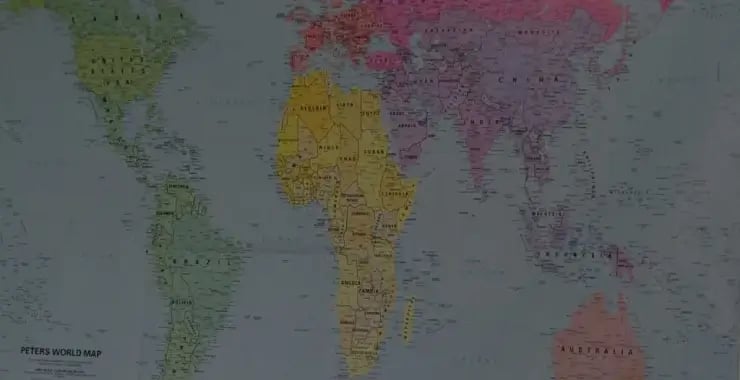Last year the Economist magazine claimed that “While America and Europe are cutting their emissions by 60m tonnes a year combined, China is increasing its own by over 500m tonnes. This makes it a unique global threat”. Mmmm.
Whatever one might think of this “threat” narrative, the emission trend is worrying. But while some might explain this trend as being a function of the Environmental Kuznets Curve (EKC) this would probably be wishful thinking. (You will need no reminding that the EKC supposes that pollution will increase along with economic growth until per capita income reaches a certain level. It should then decline.) Studies suggest that the EKC is a rather flimsy proposition – especially regarding carbon emissions. And since carbon emissions are tightly correlated with raw material usage this insight is relevant to us. Thus, dynamics other than Kuznets are certainly at play here.
One of the primary drivers of economic globalization is advances in transport and communication technologies which have created opportunities for firms to fragment production and relocate certain business processes to their most efficient geographical location. “Offshoring” allows firms to divide up the value chain and take advantage of cost differentials (especially in wages) and uneven regulatory environments.
As a consequence, the advanced economies are undergoing a process of deindustrialization. While the world worships at the altar of efficiency and the West and concentrates on the services sector and high end niches in the industrial value chain, bulk manufacturing shifts increasingly to China and other developing countries. China might be a gargantuan consumer of resources and squanderer of energy – despite massive improvements in recent years it still uses 2.25 times as much energy as Germany per unit of GDP – yet a quarter of its emissions are embodied in the goods it exports. These are generally low value and usually consumed in the affluent countries.
While this movement along the global value chain is driving the trend to which the Economist refers, China’s rapid urbanization (discussed in a recent article on this blog) is also a major factor in its vigorous metabolism – construction accounts for 60% of its material footprint.
Last week we examined how the EU was using its roadmap to navigate its way towards greater resource efficiency. We also reviewed the leading indicators of its progress – domestic material consumption (DMC) and resource productivity (GDP divided by DMC). Yet a recent paper provides an interesting perspective on these metrics.
The material footprint of nations, by a group of researchers led by Thomas Wiedmann demonstrated that due to the metrics conventionally used, “achievements in decoupling in advanced economies are smaller than reported or even nonexistent”. The paper used the material footprint approach which takes better account of whole life cycles by including “the upstream raw materials related to imports and exports originating from outside of the focal economy”. It concluded that DMC “does not reveal the true extent of resource dependence and burden shifting, and can limit decision making”.
Rather soberingly, Weidmann’s team found that the apparent gains in resource productivity in OECD countries in terms of GDP/DMC evaporated when the material footprint approach was applied. Moreover, “no decoupling has taken place over the past two decades for this group of developed countries”. They have simply “leaked” their resource consumption off-shore.
With the above discussion of Kuznets in mind, I note that the study found that as countries become wealthier, they use international trade to reduce their domestic materials extraction:
Importantly, our research confirms that pressure on natural resources does not relent as most of the human population becomes wealthier. Rather than a mere decline in intensities of use and impact, true dematerialization has to mean an absolute decoupling of impacts if a growing world population is to make ends meet on a finite planet. The MF [material footprint] indicates that this goal might be harder to achieve than previously thought as global affluence grows.
As rich countries ascend further up the global production value chain it might appear that they are becoming more resource efficient – yet their economies remain quite “material”. If you manage what you measure then you ought to be sure that you’re measuring the right thing and taking account of full life cycles. Only then might effective policies be developed and implemented.
Next week we will see how China and Australia – the world’s factory and its quarry respectively – are pursuing resource efficiency.
Article image by Dave Lisle 2014.





